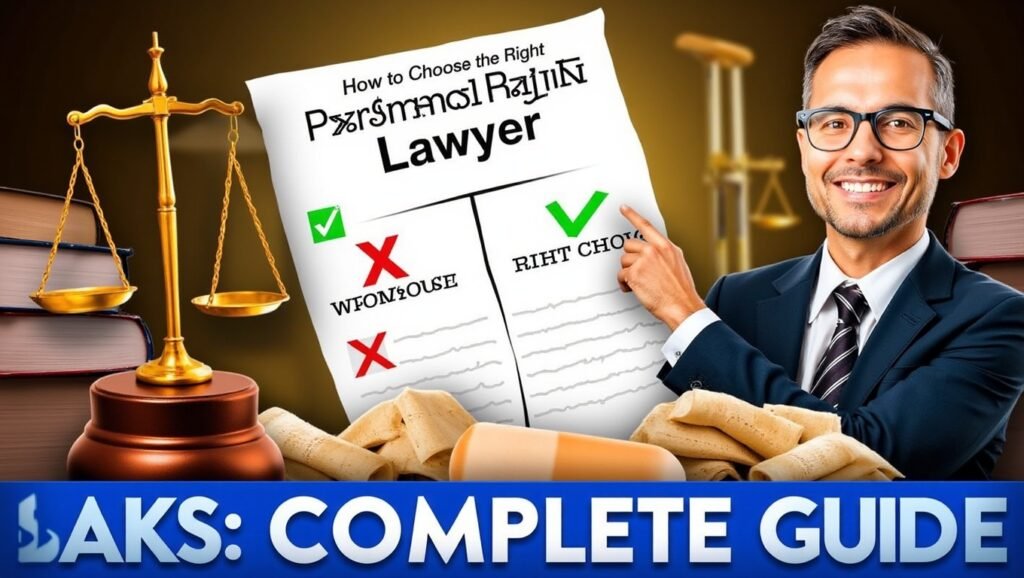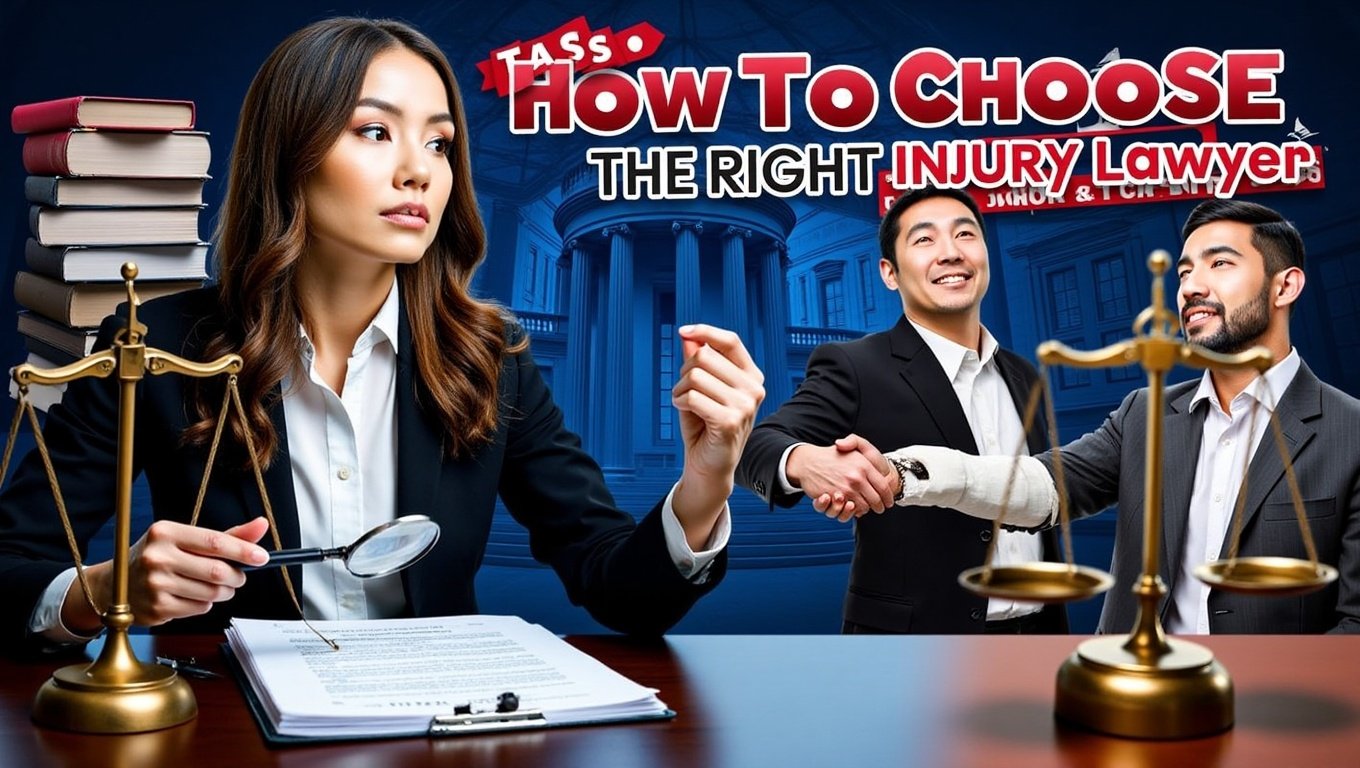Guide to Choosing a Personal Injury Lawyer
A personal injury can be a traumatic and life-altering event, regardless of whether it results from a car accident, an incident at work, or a slip and fall. Selecting the best personal injury attroney is one of the most crucial choices you can make during such a trying time. In addition to guiding you through the court system, the right lawyer will fight to get you just compensation for your injuries.
You can choose a personal injury attorney with confidence if you follow this guide. which will take you through the important considerations.
Table of Contents
1. Understand the Importance of a Personal Injury Lawyer
A peronal injury attorney focuses on defending people who have sufferd psychological or physical harm as a result of the carelessness or misconduct of others. These lawyers assist clients in obtaining damages for pain and suffering, missed income, medical expenses, and other losses.
The likelihood of a successful claim can be considerably raised by working with an experienced attorney. Without legal counsel, you might wind up setting for much less than you deserve because insurance companies frequently attempt to reduce payouts.
2. Look for Experience in Personal Injury Law
Lawyers are not all created equal. In addition to general legal practice, you need someone with a great deal of experience in personal injury attroney with a solid track record will:
Recognize the subtle differences between local and personal injury laws. possess prior insurance company negotiation experience.
Learn how to use accident reports, medical records and expert testimony to support your case.
If a trial is required, be ready to go to trial.
Inquire about prospective attorneys particular experience handling cases like yours. If you were hurt in a motorcycle accident, for instance, pick a lawyer who has experience with motorcycle injury cases.
3. Evaluate Reputation and Reviews
Word-of-mouth is still very important. Start by looking up online reviews on sites such as Martindale-Hubbell, Avvo, or Google. Seek out recurring comments regarding the attorney’s client care, success rate, professionalism, and responsiveness.
Ask friends, relatives, or coworkers for recommendations as well. To make sure the attorney is in good standing and has never faced disciplinary action, you can also check with your state bar association.

4. Consider Communication and Accessibility
A competent personal injury attorney ought to be approachable and communicative. From the first consultation, observe the lawyer’s responsiveness:
Do they promptly return emails and phone calls?
Do they provide clear explanations of intricate legal jargon?
Do they give you respect and a sense of being heard?
Effective communication is crucial because you and your lawyer will be collaborating closely throughout the course of your case. Look elsewhere if a lawyer is unresponsive to your calls or dismisses your concerns.
5. Understand Their Fee Structure
The majority of personal injury attorneys take cases on a contingency fee basis, which means they only get paid if you win. The attorney will typically receive a portion of the final settlement or court award, typically between 25 and 40 percent.
Make sure you comprehend everything before signing any agreements:
The percentage that the attorney will accept.
If you lose, will you be liable for any costs (such as filing fees or expert witness fees)?
How your settlement will be reduced to cover the costs.
Request a written fee schedule, and don’t be scared to compare prices from various attroneys.
6. Assess Their Resources
The pursuit of personal injury cases can be costly and complicated. To support your case, your attorney might need to bring in investigations, medical specialists, accident reconstruction experts, or other experts.
It’s more likely that a reputable legal practise with lots of resources will be able to fund your case. Solo practitioners can also be very good, but make sure they have the resources and support they need to fight a good case.
7. Trial Experience Matters
Some personal injury cases do go to trial, but the majority are resolved out of court. If a trial is required, you want a lawyer who is both willing and able to go to trial.
Inquire:
How many cases involving personal injuries have you tried in court?
What were the results?
If the insurance companies are aware that your lawyer is ready to fight in court, they are more likely to make a better settlement offer.
8. Schedule a Free Consultation
The majority of personal injury lawyers provide a free initial consultation. This is your chance to assess the lawyer’s style, ask questions, and determine wheather you are comfortable working with them.
Ask yourself the following questions to get ready for your consultation:
How many cases similar to mine have you dealt with?
How would you rate my case?
What difficulties do you anticipate?
How are you going to update me?
Consider thismeeting to be a fact-finding session as well as an interview.
9. Trust Your Instincts
Experience, reviews, and credentials are all significant but so is your intuition. Your lawyer should make you feel respected, at ease, and confident. They ought to be forthright about your legal options and genuinely interested in assisting you in getting better from your injury.
Don’t follow your gut if something doesn’t feel right or if attorney comes across as uninterested or overly combative. Select a lawyer you can trust during what could be a trying and emotional time because the lawyer-client relationship is based on trust.
10. Make a Decision and Take Action Quickly
Statutes of limitations-legal deadlines that change based on the jurisdiction and type of injury-apply to personal injury claims. You risk losing your right to make a claim if you wait too long.
After conducting your research and consulting with others, take immediate action. Effectively iniating the legal process, gathering witness statements, and protecting evidence can all be achieved by hiring the right attorney early on.




